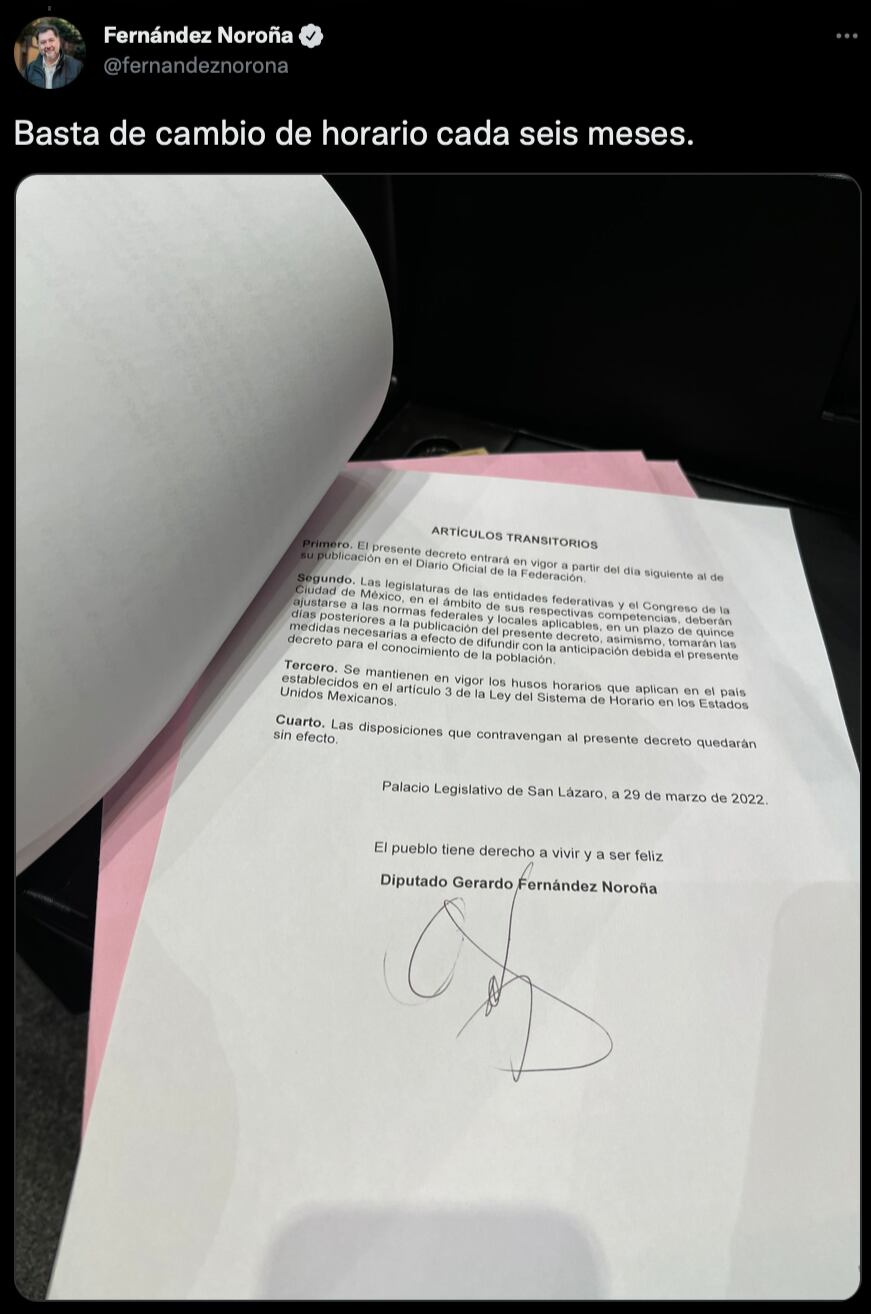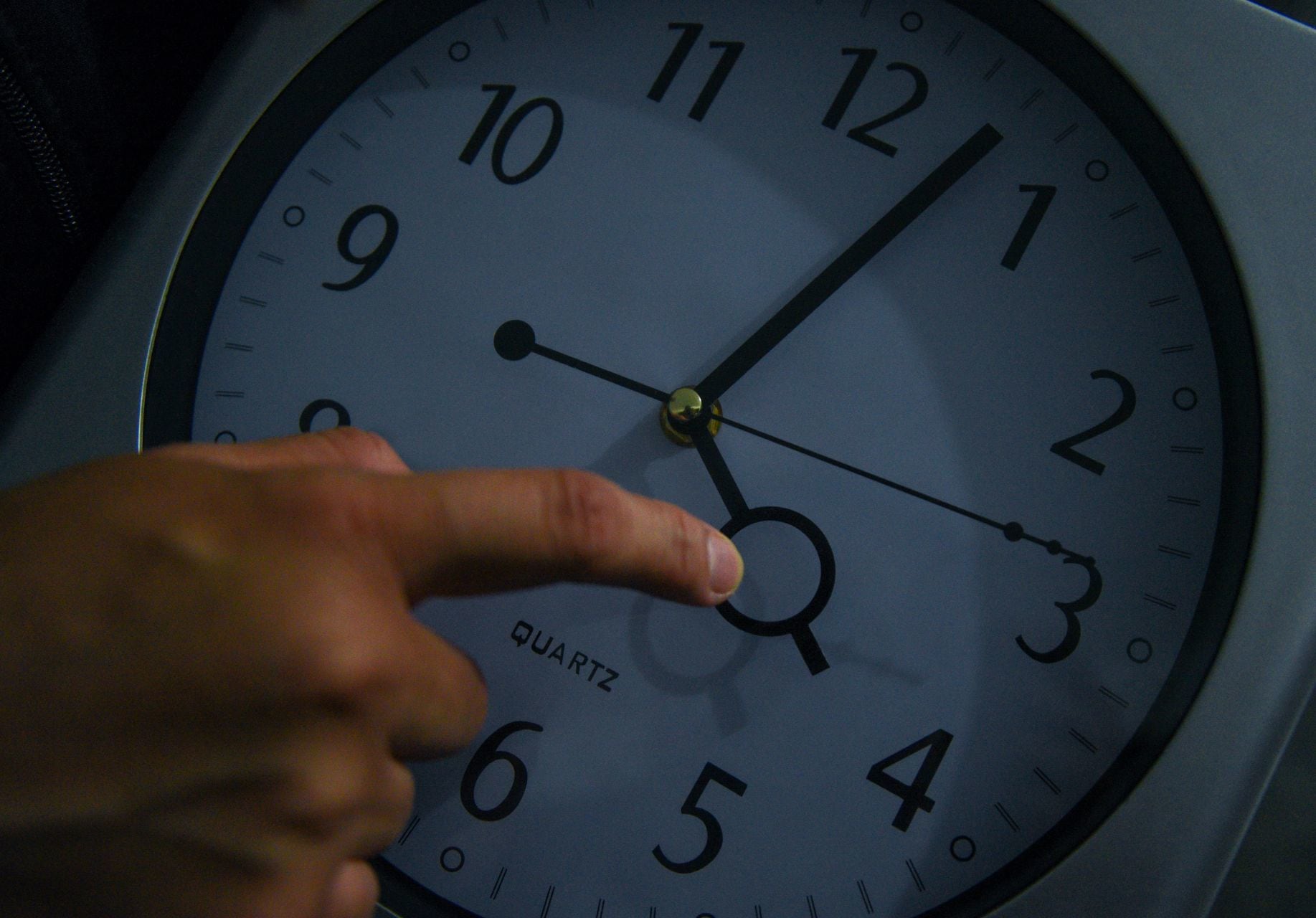
Gerardo Fernández Noroña, federal deputy for the Labour Party (PT), joined the debate to eliminate Daylight Saving Time and proposed a an initiative to repeal, by means of a decree, the measure that was implemented at the national level in 1996, during the six-year term of Ernesto Zedillo Ponce de León.
Through his official Twitter account, the legislator shared some pages of the document that this Thursday afternoon, March 31, will presumably be debated in the Chamber of Deputies; however, it should be remembered that he is not the only popular representative to present a similar reform, since the member of the Party of the Revolution Democrática (PRD), Olga Luz Espinosa, also released a document along the same lines.
However, the Political Coordination Board (Jucopo) of the Lower House agreed that, before the measure is put to the vote, the Secretariats of Energy (Sener), Economy (SE) and Health (SSA) would be consulted to contribute their knowledge on the subject, and then bring the election to the plenary session.
Against this background, with a clear message: “Enough changing the schedule every six months”, the Petista legislator proposed, adopting a position similar to that expressed by President Andrés Manuel López Obrador (AMLO), that the measure be eliminated because it has not generated “savings in energy consumption”, that is, in the category in the that was thought of.

According to the document submitted by the member of the Fourth Transformation, its reform aims to amend the Timetable System Law - which was amended in 2001 so that the aforementioned schedule would only last five months and not seven, as originally proposed - as well as the decree that established the seasonal schedule on 1 March 2002.
Likewise, quoting former deputy Iterián Gallegos, Fernández Noroña indicated that the measure should be analyzed and voted affirmatively because it has presumably generated a cost on people's health, due to the fact that they change their sleep and rest schedules.
Finally, the initiative also intends that, if approved, the local laws of the 32 states of the republic will be amended within 15 days after the publication of the decree in the Official Gazette of the Federation (DOF).

The issue has been in public discussion for weeks, especially when the Mexican president promised, during his morning conference, that he will present a initiative to repeal the time change throughout the country.
Although it should be noted that, Mexican law establishes that any initiative on the subject must be submitted to the Congress of the Union no later than November 15 of the year prior to which it is intended to modify, that is, that it would have to be discussed until the penultimate month of the year if it is desired to enter into force by 2023.
In addition, because the United States is its largest trading partner, Mexico often adapts its time zones to meet the needs of border customs and border bridge operations that keep the economic activity of both countries in sync.
This was precisely one of the many reasons why in 1996 the Mexican government decided to implement the time change throughout the country, since until then only Baja California regularly adapted to time changes in the United States.
KEEP READING:
Últimas Noticias
Debanhi Escobar: they secured the motel where she was found lifeless in a cistern
Members of the Specialized Prosecutor's Office in Nuevo León secured the Nueva Castilla Motel as part of the investigations into the case

The oldest person in the world died at the age of 119
Kane Tanaka lived in Japan. She was born six months earlier than George Orwell, the same year that the Wright brothers first flew, and Marie Curie became the first woman to win a Nobel Prize

Macabre find in CDMX: they left a body bagged and tied in a taxi
The body was left in the back seats of the car. It was covered with black bags and tied with industrial tape
The eagles of America will face Manchester City in a duel of legends. Here are the details
The top Mexican football champion will play a match with Pep Guardiola's squad in the Lone Star Cup

Why is it good to bring dogs out to know the world when they are puppies
A so-called protection against the spread of diseases threatens the integral development of dogs




